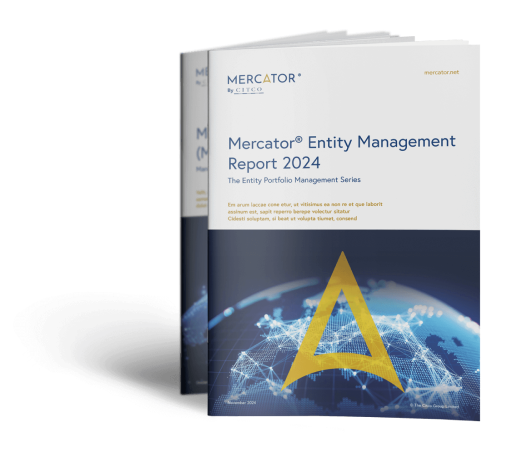The information contained in this document is marketing material and for informational purposes only. The information contained in this document is presented without any warranty or representation as to its accuracy or completeness and all implied representations or warranties of any kind are hereby disclaimed. Recipients of this document, whether clients or otherwise, should not act or refrain from acting on the basis of any information included in this document without seeking appropriate professional advice. The provision of the information contained in this document does not establish any express or implied duty or obligation between Citco and any recipient and neither Citco nor any of its shareholders, members, directors, principals or personnel shall be responsible or liable for results arising from the use or reliance of the information contained in this document including, without limitation, any loss (whether direct, indirect, in contract, tort or otherwise) arising from any decision made or action taken by any party in reliance upon the information contained in this document. © The Citco Group Limited, December 2024.
Press Release: UK tops global rankings for ease of navigating UBO compliance
The United Kingdom ranks as the top jurisdiction for companies to manage Ultimate Beneficial Ownership compliance, according to data compiled by entity management specialists Mercator® by Citco (Mercator), in its Ultimate Beneficial Ownership: Special Report.
The data – sourced directly from Mercator’s custom-built technology platform, Entica® – analyzes the cost and time it takes for multinational companies to keep their entities in compliance with the various Ultimate Beneficial Ownership[1] (UBO) laws around the world.
Based both on the cost and time it takes for companies to complete key UBO-related tasks, the United Kingdom comes out on top followed by Luxembourg and Hong Kong.
The United Kingdom takes the top spot due the following advantages:
- A centralized governance model with all filings made through Companies House
- E-signatures are accepted not only for internal documentation but also by Companies House
- Swift processing times by Companies House
- Physical presence by the attendee is not required
- A thriving and competitive market for specialized legal and company secretarial support services
- No language requirements for foreign documents
- Signatory of the Hague Apostille Convention, meaning notarizations or legalizations are not required
In contrast, Brazil ranks bottom, followed by Colombia and the United Arab Emirates. These jurisdictions have some of the most complex and costly processes requiring paper documentation, in-person filings with authorities, translations, and legalizations.
A lack of availability of standardized documentation and reliable public UBO registers also slows the process, creating costly inefficiencies. This makes the role of supporting compliance obligations and validating Beneficial Ownership an onerous undertaking for in-house teams.
Kariem Abdellatif, Head of Mercator by Citco said:
“High profile corporate data breaches have exposed the abuse of corporate structures for illicit purposes and made identifying beneficial owners one of the prevailing concerns for policy makers and government institutions around the world. Consequently, there are now 106 countries around the world with some-kind-of UBO reporting requirements.
“However, as UBO requirements have come into force, they have been complicated by discrepancies and varying definitions, applicable rules and reporting processes between jurisdictions.
“In-house legal teams are now faced with mounting pressures to keep their entities in compliance or face potential multi-million-dollar penalties or even criminal prosecution as well as reputational damage and business continuity issues.
“It is imperative companies have robust internal compliance strategies in place to mitigate risk and ensure compliance with the latest UBO laws and regulations.
“Of course, the purpose of this report is not to advise on where to base entities – this is obviously dictated by necessity – but to set expectations and provide foresight on the relative cost and time it takes to keep entities in compliance with UBO laws around the world.”
[1] UBOs are the individuals or entities with financial control or ownership of a company. The definition of who constitutes a UBO varies between jurisdictions, but generally, a UBO is defined as an individual who holds a minimum of 10-25% of capital or voting rights in the underlying entity.

